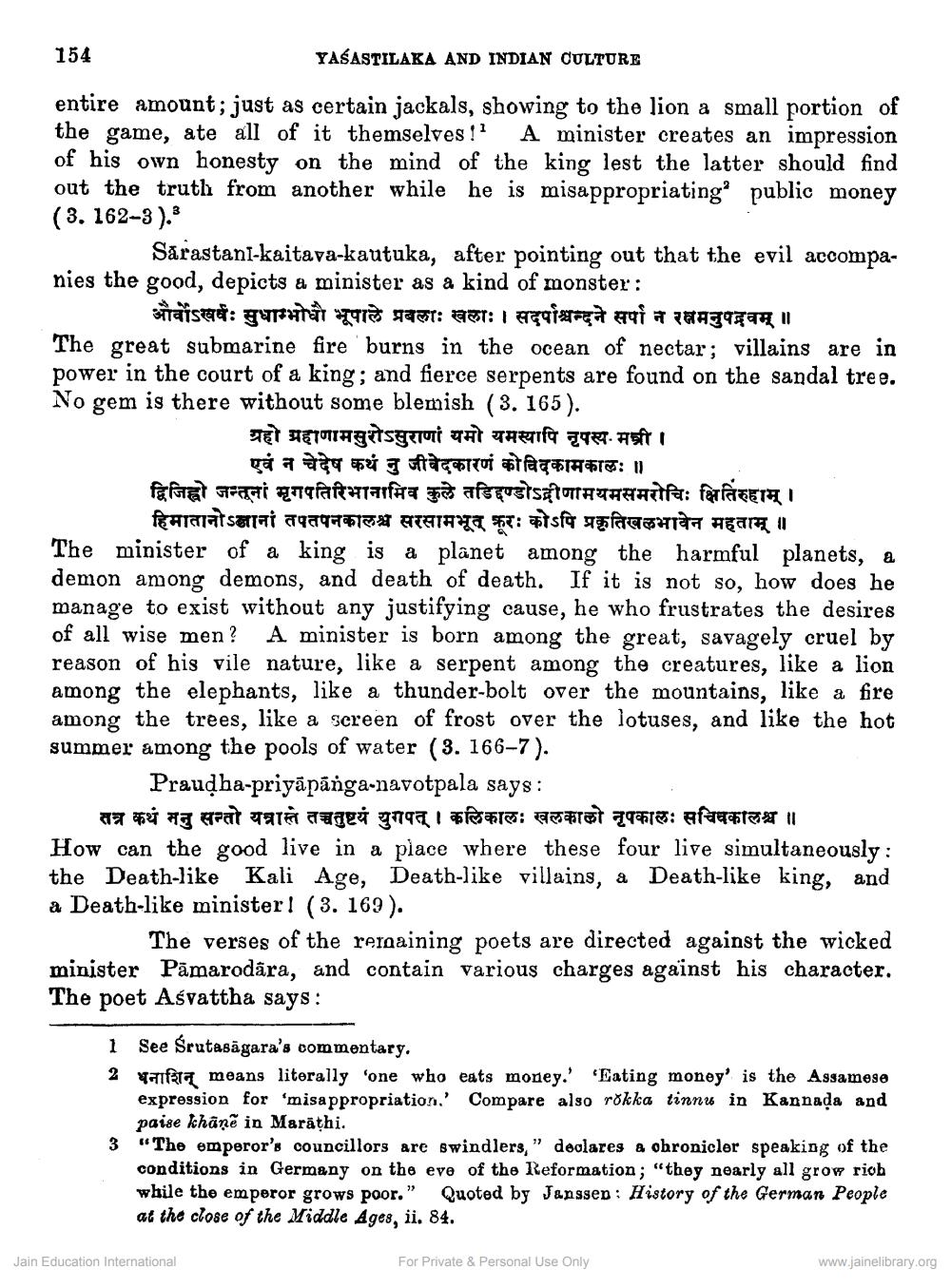________________
154
YAŠASTILAKA AND INDIAN CULTURE
entire amount; just as certain jackals, showing to the lion a small portion of the game, ate all of it themselves!? A minister creates an impression of his own honesty on the mind of the king lest the latter should find out the truth from another while he is misappropriatinga public money (3. 162-3).
Sarastani-kaitava-kautuka, after pointing out that the evil accompanies the good, depicts a minister as a kind of monster:
और्वोऽखर्वः सुधाम्भोधौ भूपाले प्रबलाः खलाः । सदश्चिन्दने सर्पा न रखमनुपद्रवम् ॥ The great submarine fire burns in the ocean of nectar; villains are in power in the court of a king; and fierce serpents are found on the sandal tree. No gem is there without some blemish (3. 165).
ग्रहो ग्रहाणामसुरोऽसुराणां यमो यमस्यापि नृपस्य मन्त्री ।
एवं न चेदेष कथं नु जीवेदकारणं कोविदकामकालः ॥ द्विजिह्वो जन्तूनां मृगपतिरिभानामिव कुले तडिद्दण्डोऽद्रीणामयमसमरोचिः क्षितिरुहाम् ।
हिमातानोऽज्ञानां तपतपनकालश्च सरसामभूत् क्रूरः कोऽपि प्रकृतिखलभावेन महताम् ॥ The minister of a king is a planet among the harmful planets, a demon among demons, and death of death. If it is not so, how does he manage to exist without any justifying cause, he who frustrates the desires of all wise men? A minister is born among the great, savagely cruel by reason of his vile nature, like a serpent among the creatures, like a lion among the elephants, like a thunder-bolt over the mountains, like a fire among the trees, like a screen of frost over the lotuses, and like the hot summer among the pools of water (3. 166-7).
Prauļha-priyāpānga-navotpala says: तत्र कथं मनु सन्तो यत्रास्ते तच्चतुष्टयं युगपत् । कलिकालः खलकालो नृपकालः सचिवकालश्च ।। How can the good live in a piace where these four live simultaneously : the Death-like Kali Age, Death-like villains, a Death-like king, and a Death-like minister! (3. 169).
The verses of the remaining poets are directed against the wicked minister Pāmarodara, and contain various charges against his character. The poet Asvattha says:
1 See Śrutasāgara's commentary, 2 fra means literally one who eats money.' 'Eating money' is the Assamese
expression for 'misappropriation. Compare also rokka tinnu in Kannada and paise khânē in Marāthi. "The emperor's councillors are swindlers," declares a obronicler speaking of the conditions in Germany on the eve of the Reformation; "they nearly all grow riob while the emperor grows poor." Quoted by Janssen : History of the German People at the close of the Middle Ages, ii. 84.
Jain Education International
For Private & Personal Use Only
www.jainelibrary.org




